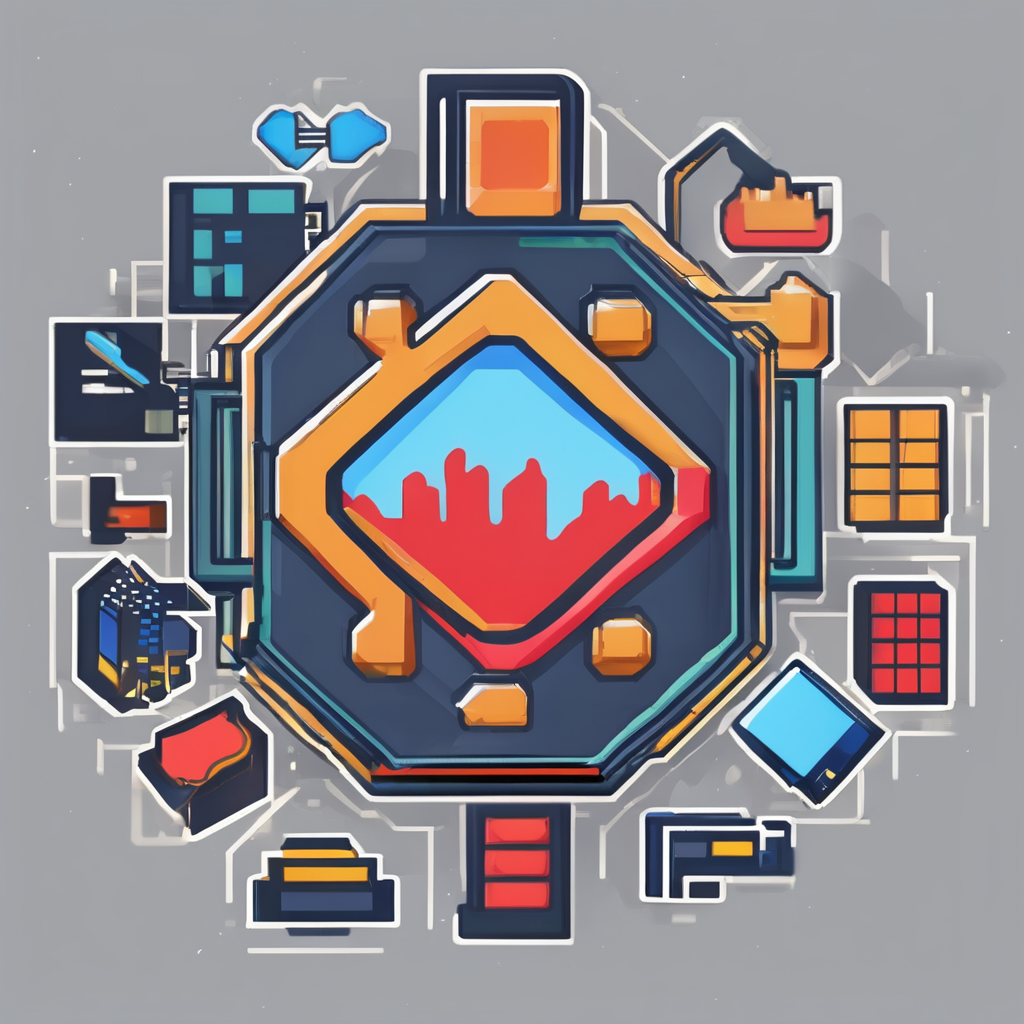Overview of UK Computing Hardware in Healthcare
The realm of healthcare technology in the UK has undergone significant transformation, primarily due to advancements in computing hardware. UK computing hardware in healthcare encompasses a variety of systems including servers, storage solutions, and increasingly sophisticated diagnostic tools. A core component of this hardware is its ability to support complex computational tasks essential in modern medical advancements. The evolution of computing solutions began with basic data entry applications, gradually progressing to more advanced systems capable of AI-driven analytics.
Understanding the types of hardware used in the UK healthcare sector is crucial. These range from traditional PCs and servers to more specialized equipment such as imaging machines and laboratory instruments, all of which are integral for patient management and medical procedures. Over the years, the UK has been at the forefront of numerous computing innovations, contributing to more accurate diagnostics, efficient patient monitoring, and streamlined operations within healthcare facilities.
Also read : What role does UK computing hardware play in cloud infrastructure?
The importance of computing hardware cannot be overstated in the context of contemporary healthcare systems. These technologies facilitate the rapid processing and sharing of patient data, support telemedicine, and enhance the scope of personalized treatment plans. As the industry continues to evolve, maintaining and developing robust computing infrastructure will remain a priority to support healthcare professionals in delivering optimal patient care.
Key Advantages of UK Computing Hardware
The deployment of UK computing hardware in healthcare settings marks a vital step toward enhancing healthcare efficiency and improving patient outcomes. One of the key benefits is the enhanced data management and accessibility it provides. The ability to quickly access and process patient data results in faster decision-making and more informed patient care. This capability is crucial for maintaining a high standard of healthcare, allowing practitioners to tailor treatments effectively.
In the same genre : Exploring the role of uk computing hardware in enhancing remote work and collaboration
Another significant advantage is the improvement in diagnostic accuracy through advanced computational methods. Modern technology aids in minimizing human error and maximizing precision in diagnostics, leading to better treatment plans and outcomes. These medical technology advancements are instrumental in early disease detection, where timing can significantly affect patient recovery.
Furthermore, investing in computing hardware yields a reduction in operational costs as well as increased efficiencies. By automating routine tasks, healthcare facilities can allocate resources more effectively, ultimately enhancing productivity. With these advancements, the healthcare industry in the UK can deliver services more economically while maintaining robust patient care standards.
Technological Advancements and Innovations
The realm of technological innovations in the UK is shaping the future of healthcare with groundbreaking developments. At the forefront of this transformation is the integration of AI and machine learning in both diagnostics and treatment plans. AI algorithms now assist in interpreting complex medical data, leading to more precise diagnoses and personalized patient care. For instance, AI-driven analytics can swiftly identify anomalies in medical imaging, outperforming traditional methods in both speed and accuracy.
Moreover, digital health tools have revolutionized patient interaction and data management. Wearable technology and mobile health applications offer real-time health monitoring, enabling patients to actively manage their health conditions from home. This shift not only enhances patient autonomy but also aids healthcare providers in delivering timely interventions.
Another crucial component of modern healthcare is cloud computing, which significantly enhances the scalability and accessibility of patient data. By utilizing cloud services, healthcare providers can store and access vast amounts of health records securely, which is essential for comprehensive patient management and collaboration among healthcare professionals. These innovations underscore the vital role of computing technology in advancing healthcare services, making healthcare more efficient, accessible, and effective than ever before.
Case Studies Highlighting Impact
Exploring case studies provides invaluable insights into the real-world applications of UK computing hardware in the healthcare sector. These examples highlight successful implementations that have significantly enhanced efficiency and patient care outcomes.
Specific Institutions Leveraging UK Computing Hardware
Numerous healthcare institutions across the UK are harnessing the power of computing hardware to transform their operations. For instance, a prominent London hospital upgraded its IT systems to incorporate advanced AI-driven diagnostic tools. This implementation led to a marked improvement in diagnostic accuracy, reducing the time to initiate treatments and thereby improving patient outcomes.
Outcomes from IT System Upgrades
A noteworthy case involves a leading healthcare provider in Manchester that overhauled its entire IT infrastructure. The upgraded system facilitated better data management and accessibility, allowing for seamless data sharing among medical teams. This change not only boosted healthcare efficiency but also reduced operational costs through improved resource allocation.
Comparative Case Studies
Comparing performance metrics from before and after technology implementation offers clear evidence of the benefits. A study conducted across several NHS hospitals demonstrated that integrating digital health tools resulted in a 30% increase in administrative task efficiency. Furthermore, hospitals that embraced cloud computing showed enhanced patient data security and accessibility, contributing to a more streamlined healthcare delivery system.
These case studies underscore the transformative potential of UK computing hardware in healthcare, showcasing tangible benefits that are crucial for future advancements in medical technology.
Comparisons with Global Innovations
In the ever-evolving sphere of global healthcare technology, the UK’s advancements in computing hardware are noteworthy yet face stiff competition on the international stage. International comparisons reveal that the UK holds a formidable position, particularly with its focus on AI integration and digital health tools, but how does it measure up against giants like the US and Europe?
Global Benchmarks
Examining UK computing hardware advancements alongside US and European systems, the UK shines in its emphasis on AI-driven diagnostics and comprehensive healthcare solutions. Leading healthcare technology systems demonstrate that countries with substantial investment in technology infrastructure boast faster decision-making and greater efficiency in patient care.
Competitive Insights
Insights from global healthcare leaders suggest that while the UK excels in scalable AI applications and patient data management, it often lags behind in funding and volume of research in comparison to its American counterparts. European nations, meanwhile, offer parallels in healthcare technology adoption, particularly in optimizing patient outcomes through enhanced computational tools.
Strengths and Challenges
The strengths of UK computing lie in tailored medical advancements that prioritize patient-centric solutions, yet competitive analysis highlights the need for continuous support and expansion to maintain a leading edge. Evaluating these factors underlines the importance of collaborative international efforts in pushing the boundaries of healthcare technology innovation.
Expert Opinions and Forecasts
Gaining insights from expert opinions is essential in understanding the future trajectory of healthcare technology in the UK. Noted industry leaders and healthcare professionals predict that the focus will continue to be on integrating advanced computing hardware with AI and machine learning to enhance patient outcomes and operational efficiencies. This trend promises to transform traditional models of patient management by providing real-time data analytics and personalized treatment plans.
Looking ahead, experts forecast that the UK healthcare system will further embrace cloud computing to improve scalability and data accessibility. This is anticipated to not only improve healthcare efficiency but also support research initiatives by providing expansive data storage solutions. The transition to cloud-based systems is expected to be a significant step in managing the ever-growing demands of digital health records.
Highlighting the importance of continuous innovation, industry leaders emphasize the need for ongoing investment in research and development. This commitment to advancing medical technology advancements ensures that the UK remains at the forefront of global healthcare innovation. As healthcare technology continues to evolve, prioritizing patient-centric solutions within a robust computing infrastructure will be paramount in delivering superior healthcare services.







